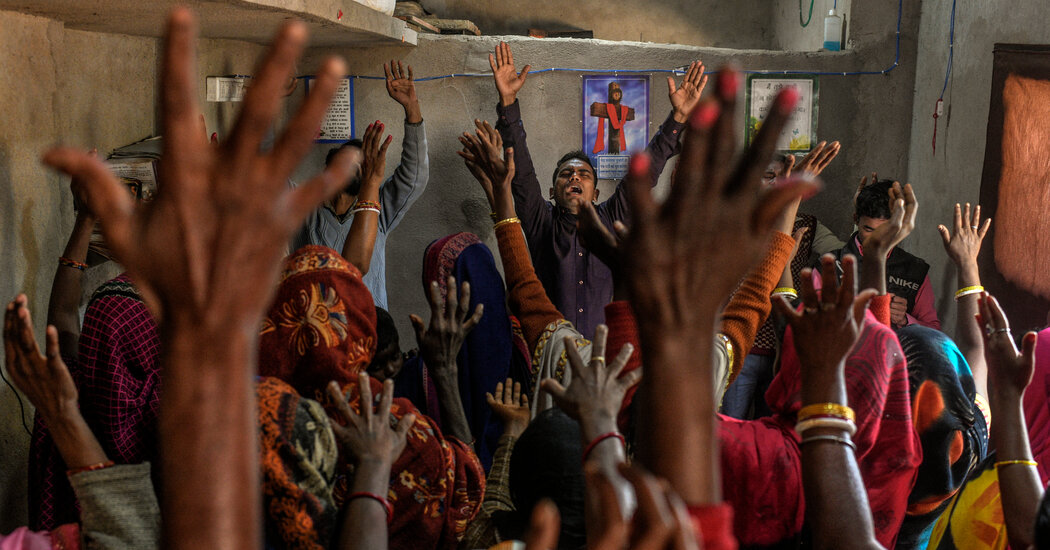
Muttur Devi, a lower caste woman who works on a farm in the impoverished state of Bihar, adopted Christianity two years ago. Still, each morning, she affixes a bindi, a small circular sticker, to her forehead, and paints a vermilion stripe on her scalp. These are visible Hindu marks that she says help disguise her departure from Hinduism.
“If I take this off,” she said, touching her bindi, “the whole village will harass me.”
One cold night this past winter, Pastor Patil drove to a secret prayer session in an unmarked farmhouse. He quickly stepped inside. On a dusty carpet that smelled like sheep, two dozen Pentecostal Christians waited for him. Most were lower-caste farmers. When a dog barked outside, one woman whipped around and whispered, “What’s that?”
Pastor Patil reassured the woman that she was doing nothing wrong and that God was watching over. He cracked open his weathered, Hindi-language Bible and rested his finger on Luke 21, an apt passage for his beleaguered flock.
“They will seize you and persecute you,” he read, voice trembling.
“You will be betrayed even by parents, brothers, sisters, relatives and friends,” he went on, tracing the passages with his finger. “They will put some of you to death. Everyone will hate you because of me.”
The farmers sitting on the floor, some holding sleeping babies, watched him closely.
They also checked the windows to make sure no one was coming.




